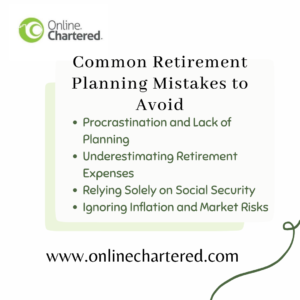Retirement planning

Introduction
Retirement planning is the process of determining your financial goals and taking the necessary steps to achieve them even after leaving your current job or quitting your business. It involves assessing your financial needs, estimating retirement income, and devising strategies to ensure a steady stream of income during your retirement years. A well-structured retirement plan helps you maintain your desired lifestyle and provides financial security when you are no longer working. Lets us see how can you continue your current lifestyle after retiring from your occupation and how can you manage your expenditure and income.
What is Retirement Planning?
Retirement planning refers to the process of determining retirement income from current savings and the actions required to manage well the income. It involves considering various factors such as expected retirement age, desired lifestyle, inflation, and estimated life expectancy. By engaging in retirement planning, individuals can make informed decisions about saving, investment, and other financial aspects to ensure a financially stable future.
Benefits of Retirement Planning
Retirement planning offers numerous benefits. Firstly, it helps you accumulate the required funds to support your lifestyle during retirement. By starting early, you allow your investments to compound and grow significantly over the years. Secondly, retirement planning provides a sense of security and peace of mind, knowing that you have a financial safety net in place. It also enables you to take advantage of tax benefits and incentives offered by retirement savings accounts.
- Ensure Financial Security: Effective retirement planning helps individuals build a substantial nest egg, ensuring financial security during their retirement years.
- Maintain Lifestyle: By planning ahead, individuals can maintain their desired lifestyle and engage in activities they enjoy without financial worries.
- Reduce Dependency: Adequate retirement savings reduce the likelihood of depending on others for financial assistance, providing individuals with independence and peace of mind.
Exploring Pension Schemes
What Are Pension Schemes?
Pension schemes are retirement savings plans that aim to provide individuals with a regular income during their retirement years. These schemes are designed to accumulate funds over the course of a person’s working life and distribute them as pension benefits upon retirement. Pension schemes can be sponsored by employers or established individually.
Retirement Saving Options
When it comes to retirement savings, individuals have various options to consider. Some common retirement saving options include:
- Employer-Sponsored Retirement Plans: Many employers offer retirement plans such as 401(k) or 403(b), which allow employees to contribute a portion of their income towards retirement savings, often with matching contributions from the employer.
- Individual Retirement Accounts (IRAs): IRAs are personal retirement accounts that provide tax advantages for retirement savings. Traditional IRAs offer tax-deferred growth, while Roth IRAs provide tax-free withdrawals in retirement.
- Annuities: Annuities are insurance contracts that offer regular payments during retirement. They can provide a steady income stream but often come with various fees and limitations.
Types of Pension Schemes
There are two main types of pension schemes: defined benefit (DB) pension schemes and defined contribution (DC) pension schemes.
Defined Benefit Pension Schemes
In a defined benefit pension scheme, the retirement income is based on a formula that considers factors such as the individual’s salary and years of service. The employer is responsible for funding the scheme and guarantees a specific retirement benefit. The advantage of DB pension schemes is that they provide a stable and predictable income stream during retirement.
Defined Contribution Pension Schemes
In a defined contribution pension scheme, the contributions made by the individual and/or employer are invested to accumulate a retirement fund. The final pension benefit depends on the performance of the investments and the contributions made over time. Unlike DB schemes, the retirement income from DC schemes is not predetermined and can vary based on investment returns.
Additional Retirement Planning Considerations
In addition to pension schemes, there are other important considerations when planning for retirement.
Health Care and Long-Term Care
Healthcare expenses can significantly impact your retirement budget. Research health insurance options, including Medicare and supplemental plans, to ensure you have adequate coverage. Additionally, consider the costs associated with long-term care and explore long-term care insurance options to protect your savings from potentially high medical expenses.
Estate Planning
Estate planning involves preparing for the distribution of your assets and ensuring your loved ones are taken care of after you’re gone. Consider creating a will, establishing trusts, and designating beneficiaries for your retirement accounts and life insurance policies. Consult with an estate planning attorney to ensure your wishes are documented legally.
Social Security and Other Government Programs
Understand how Social Security benefits work and the impact they will have on your retirement income. Explore the different claiming strategies and decide when is the best time for you to start receiving benefits. Research other government programs that may provide additional support during retirement, such as Medicaid or veterans’ benefits.
Retirement Planning for Different Age Groups
Retirement planning strategies can vary depending on an individual’s age group. Consider the following age-based recommendations:
- 20s and 30s: Young professionals should focus on establishing good financial habits, such as budgeting, saving, and paying off debt. Taking advantage of employer-sponsored retirement plans and investing in growth-oriented assets can yield long-term benefits.
- The 40s and 50s: As retirement approaches, individuals in this age group should assess their savings and retirement goals. Catch-up contributions to retirement accounts and diversification of investments can help bridge any gaps.
- The 60s and Beyond: Individuals nearing retirement should refine their retirement plans, evaluate Social Security claiming strategies, and consider how to convert savings into a steady income stream. Consulting with a financial advisor can provide valuable guidance during this critical phase.
Common Retirement Planning Mistakes to Avoid
In retirement planning, it’s important to be aware of common pitfalls that can hinder your financial security in retirement.
Procrastination and Lack of Planning
Delaying retirement planning can significantly impact the amount of savings you accumulate. Start planning as early as possible to benefit from compounding returns and have more time to adjust your strategy if needed.
Underestimating Retirement Expenses
Many individuals underestimate the expenses they will face in retirement. Consider factors such as healthcare costs, inflation, and potential long-term care needs. Be realistic when estimating your retirement income needs to ensure you have sufficient funds to maintain your desired lifestyle.
Relying Solely on Social Security
While Social Security benefits provide a valuable source of income, they may not be sufficient to cover all your retirement expenses. Relying solely on Social Security without additional savings can leave you financially vulnerable. Supplement your retirement income with other sources, such as pension schemes and personal savings.
Ignoring Inflation and Market Risks
Inflation and market risks can erode the purchasing power of your savings over time. It’s important to consider these risks when developing your retirement plan and make appropriate adjustments to your investment strategy to mitigate their impact.

Conclusion
Retirement planning, including understanding pension schemes, is essential for ensuring a comfortable and financially secure future. By assessing your financial needs, setting clear retirement goals, and developing a comprehensive retirement plan, you can navigate the complexities of retirement and enjoy your golden years with peace of mind. Consider seeking professional advice from a financial advisor to optimize your retirement strategy and avoid common planning mistakes. Start early, stay informed, and make adjustments as needed to ensure a successful and fulfilling retirement. To make your retirement healthy, happy, and prosperous, you must consult our expert to get the best guidance.
FAQs
1. What is the ideal age to start retirement planning?
The ideal age to start retirement planning is as early as possible. The earlier you start, the more time you have to accumulate savings and benefit from compounding returns.
2. Are pension schemes the only option for retirement savings?
No, pension schemes are not the only option for retirement savings. Individual retirement accounts (IRAs), employer-sponsored 401(k) plans, and personal savings are alternative avenues for saving for retirement.
3. How much should I save for retirement?
The amount you should save for retirement depends on factors such as your desired lifestyle, anticipated expenses, and retirement age. It’s recommended to aim for saving at least 10-15% of your income each year.
4. Should I consult a financial advisor for retirement planning?
Consulting a financial advisor can provide valuable insights and personalized guidance for retirement planning. They can help you develop a comprehensive plan and navigate the complexities of investment options and tax considerations.
5. Can I make changes to my retirement plan as I go along?
Yes, it’s important to regularly review and adjust your retirement plan as needed. Life circumstances, financial goals, and market conditions may change over time, requiring modifications to your strategy.
You may like this also:
Procedure To Apply For Higher Pension
